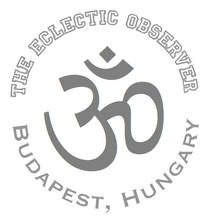
BY IDAMINA BABARINSA
Corruption is a major issue in Nigeria. It is common especially in the Nigerian government, but it can even be seen on the streets as policemen extort money from motorists to supplement their wages. It is in politics and government that corruption is most damaging, where it has become so common over the years that its effects are felt in every organisation, institution and office. It has become so pervasive and accepted that if one decides not to take part in it, the result may be loss of job or even life.
Nigeria is a country that has been blessed with a lot of natural resources with crude oil its major source of revenue. Nigeria is the 8th largest oil producing nation in the world and the largest oil producing nation in Africa. Despite all its riches, most citizens are living in abject poverty, as a result of corrupt leaders who are only interested in embezzling money to enrich themselves. Nigeria is currently ranked as the 18th most corrupt country in the world by Forbes Magazine.
“Corruption has become so deep-seated in the country that it has stunted the growth in all sectors and it has been the primary reason behind the country’s difficulties in developing fast,” reads a report by Nigeria-Planet.com. “Nigerians suffer because corruption made it hard to run government transparently, scandals became rife, projects were plagued by corruption which even seeped into so many private areas of people’s lives.”
The oil industry itself appears to be no exception, if a December 17, 2004 report by news agency Reuters is to be believed. Reuters stated that some 100,000 barrels of Nigeria’s oil exports were being stolen on a daily basis. This amounted to four percent of the country’s total oil exports. The report added that 70 percent of Nigeria’s population lives in poverty and that poor economic management and corruption were to blame.
Not surprisingly, corruption is a major issue in Nigerian politics.
In 1999, Olusegun obasanjo was elected president on an anti-corruption platform “Corruption is a cancer,” says Obasanjo, he added “it hinders development in any country”. One of his reforms included the creation of the Economic and financial crimes commission (EFCC), the main aim of the EFCC was to tackle and minimize corruption especially in the government. So far the EFCC has been making a lot of progress although it faces a lot of difficulties and challenges, the commission has arrested about 500 suspects and confiscated $500 million in the first 18months since it began targeting international e-mail scams and other fraud said Ribadu the EFCC chairman.
Campaigners argue that the fight against corruption can only succeed if it goes after the “untouchables”, public office holders who have direct responsibility for handling oil wealth but have broad constitutional immunity from prosecution. “We have a policy of suitable target for maximum impact, we went into e-mail scams and now we are going for public treasury looters” said Ribadu the EFCC chairman, he added “we are challenging the immunity; it is a complete conflict with the spirit of the constitution”.
The other organ also set up by the Federal Government to fight corruption in public office is the Independent Corrupt Practices and other Related Offenses Commission (ICPC) which too had scored remarkable successes since inception.
The government’s campaign against corruption manifests also in the setting up of the Due Process Office. This office oversees and demands that standard processes be followed in the execution of government activities and projects, thereby plugging avenues for bribery and corruption.
Part of the reasons for granting Nigeria debt forgiveness by the Paris Club is the renewed drive to curb corruption in the land and for transparency in government affairs.
With renewed confidence in the government to combat and reduce financial crimes and other corrupt practices, foreign investors have the guarantee of achieving their objectives in Nigeria.
While the problem of corruption has been around for a while, it is instructive to note that the will to combat it has become more resilient and with the expected co-operation of the international community, it will be reduced if not completely eliminated from Nigeria in due course.

3 comments:
The article just reminds my own country, Iran. There we can see also lots of corruption. I am just so sorry to hear and see that people around the world are suffering from their stupid government. Anyway the article is very well done in my opinion, with good examplifications of different organizations and institutes, and by mentioning that while Nigeria is one of rich countries by having oil, it still have so many poor people.
Very good work Dami. You're right, you cannot eliminate corruption but you can reduce it. It is existed all over the world but it is more serious in some countries such as my country and yours!
Maybe it was a good idea if you could mention when it was started as a serious problem in your country.
Very well written.
Post a Comment